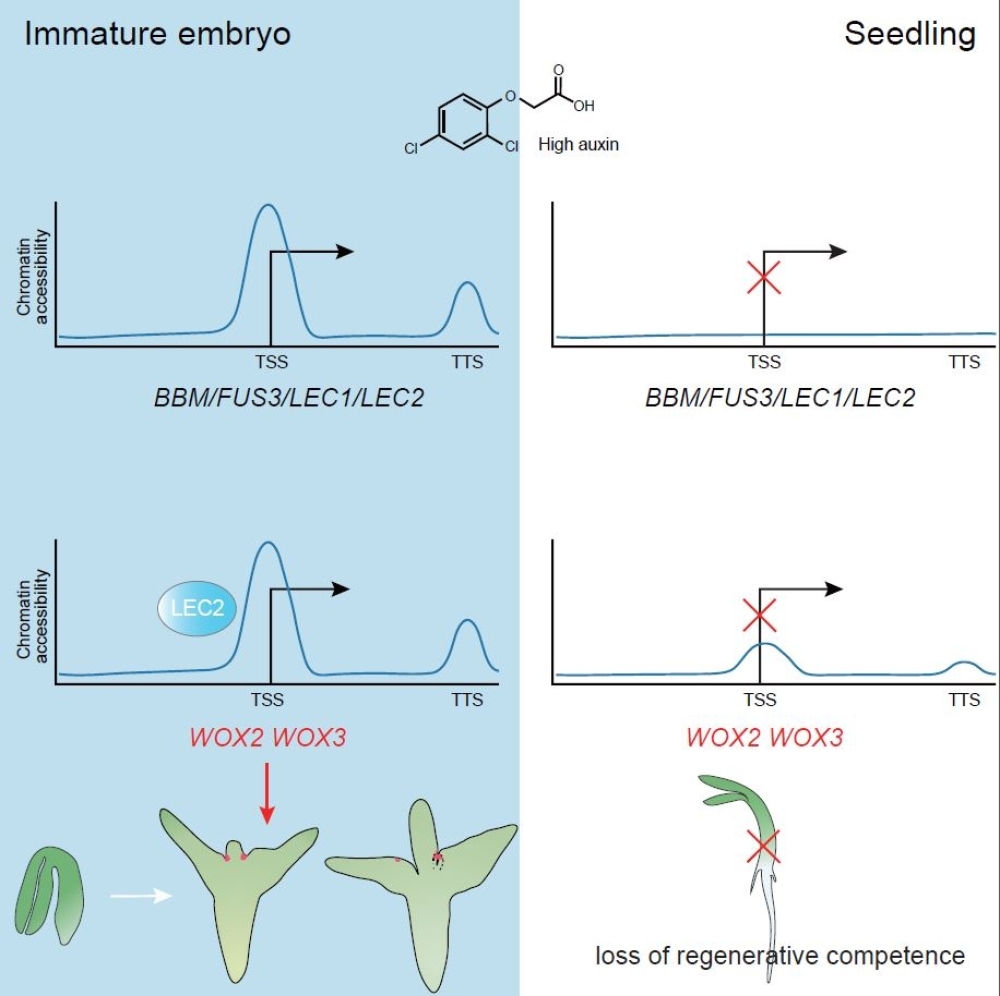A hierarchical transcriptional regulatory network for plant somatic embryogenesis
Owing to their sessile nature, plants maintain cell pluripotency or totipotency throughout their life cycles. Somatic plant cells are able to regenerate themselves in response to mechanical stimuli, or to go through somatic embryogenesis to regenerate whole plants. Since first documented in 1950s, somatic embryogenesis has become a powerful tool in plant biotechnology for propagation of endangered species and generation of genetically modified plants with improved traits. It is well known that the phytohormone auxin plays a crucial role in somatic embryogenesis by inducing a cell totipotent state. However, its underlying mechanism is poorly understood.
Now a research team led by Dr. Jia-Wei Wang, at CAS Center for Excellence in Molecular Plant Sciences, Institute of Plant Physiology & Ecology, Chinese Academy of Sciences, reveals a hierarchical transcriptional regulatory network for somatic embryogenesis. They find that the developmental stage of explants is at the top of the hierarchy, with the embryonic nature of explants being a prerequisite for somatic cell reprogramming. The loss of competence for somatic embryogenesis upon seed germination coincides with the acute degradation of the permissive chromatin signature of cell totipotency genes (such as AP2, B3 and NF-Y TFs). They next uncover that auxin acts at the second-tier of the hierarchical network, by inducing massive changes in chromatin accessibility and concomitant changes in gene expression. Particularly, auxin directly activates cell totipotency genes expression and contributes to the termination of the embryonic maturation process. Furthermore, they find that the cell totipotency genes serve as third-tier regulators and initiate somatic embryo formation by direct activation of early embryonic patterning genes.
This work delineates a hierarchical transcription factor cascade underlying auxin-induced somatic embryogenesis. Particularly, it uncovers a long sought-after molecular link between cell totipotency genes and the early embryonic development pathway.
This work is supported by the grants from National Natural Science Foundation of China (31430013; 31222029; 912173023, 31525004; 31770399) and Strategic Priority Research Program of the Chinese Academy of Sciences (XDB27030101).

Link: https://www.cell.com/developmental-cell/fulltext/S1534-5807(20)30551-7
Contact:
Dr. Jia-Wei Wang, Professor
National Key Laboratory of Plant Molecular Genetics, CAS Center for Excellence in Molecular Plant Sciences/Shanghai Institute of Plant Physiology and Ecology (SIPPE), Chinese Academic of Sciences
Tel: 86-21-54924263
Email: jwwang@cemps.ac.cn